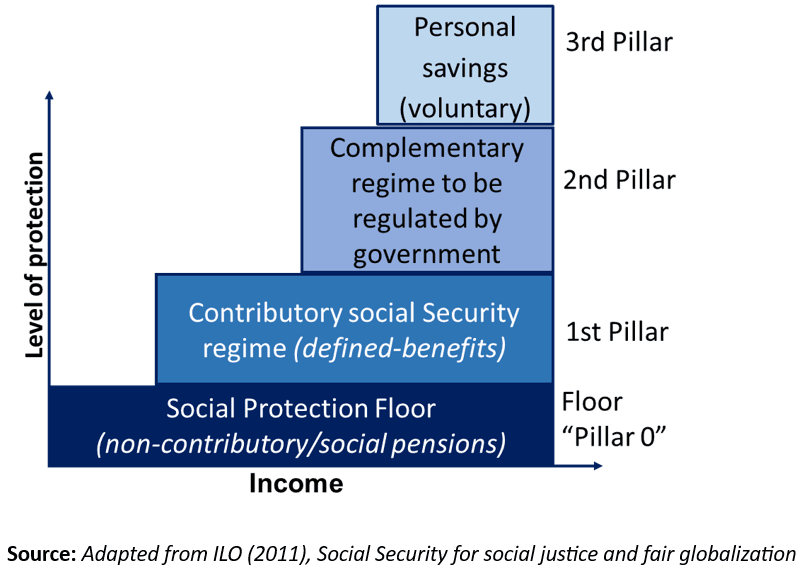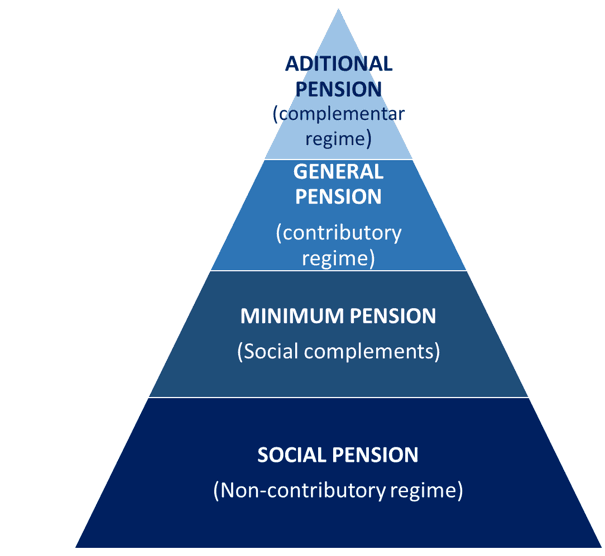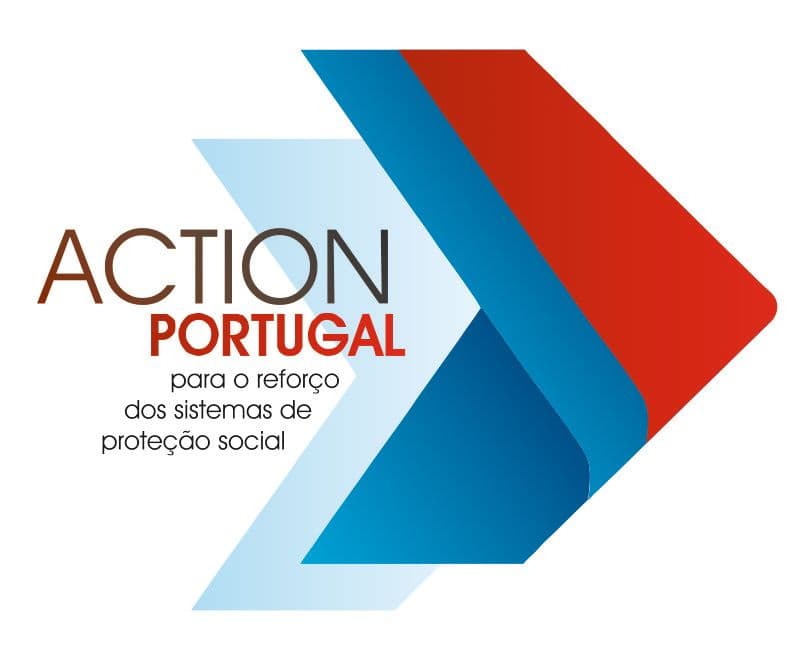Social Security History
Recognized as a constitutional right (Article 56 CRDTL) and consolidated as a component of Social Protection in the National Strategy for Social Protection 2021-2030 approved by Government Resolution 132/2021, of 9 December, Social Security in Timor-Leste has been built in phases, following the recommendations by the International Labour Organization (ILO), aiming, first, to ensure basic income security and then to increase the level of protection.

Pillar 0 – Support Allowance for the Elderly and Invalids/Social Pension
In 2008 the first level of protection (pillar 0) was created, related to the non-contributory social security regime, materialised by a social benefit aimed at elderly people and citizens of legal age in a situation of permanent and definitive incapacity for work.
This social benefit was called "Support Subsidy for the Elderly and Invalids" (SAII) and aimed at ensuring decent living conditions and access to essential services and care, regardless of resources and the situation regarding employment and the labour market.
In 2022 the benefit was revised, having been changed into a “Social Pension” that cannot be combined with other income (social benefits or income from work) and is specifically aimed at the most vulnerable and who do not have access to another type of protection, guaranteeing them an income essential minimum, corresponding to the international poverty threshold.
The provision now fulfills its main objective: to ensure minimum dignity and protection, in order to combat poverty.
1st Pillar – Contributory Social Security Scheme
The second level of protection concerns the contributory social security regime (1st pillar) and was built in two stages:
In 2012, with the transitional social security regime for State employees ; and
In 2016, is created the new general regime for all
Both regimes follow the same logic: it is a public, mandatory regime, managed on a pay-as-you-go basis.
However, the transitional regime - aimed exclusively at state workers - included only pensions (old-age, invalidity and survivors') and is financed by the budget of the Central State Administration, and no contributions have actually been created.
The general regime is a contributory regime, which associates rights (to benefits) with duties (to contribute), and extends protection to all workers, from all sectors of activity, also protecting parenthood and situations of accidents at work (the latter still to be regulated).
This second level provides higher levels of protection to those who work and contribute to the contributory system, in order to ensure an adequate standard of living after retirement or during working life, in situations of loss of income from work (for example, during maternity).
For this reason, it is also important to ensure that those who contribute can have access to a pension (old-age and invalidity) that is higher than the amount of social pension, in order to recognize the contributory effort. Therefore, the government created a transitional minimum pension in 2022 and minimum pension amounts for beneficiaries of the contributory social security regime.
For this purpose, if necessary to reach that guaranteed minimum value, a non-contributory social supplement will be paid, in addition to the amount of the pension resulting from the application of the general regime calculation formula.
The Timor-Leste Social Security System already guarantees:
a Social Pension, for those who do not contribute and have no income;
a Minimum amount of pension, for those who contribute but have lower salaries (and therefore the simple application of the calculation formula would result in a pension of a very low value)
a Pension of a higher amount, to those who contribute; This pension has an amount proportional to the declared income and contributions made throughout working life

In the future, complementary and voluntary schemes may be approved.
The Social Security System in Timor-Leste is constantly evolving – expecting a gradually extension of protection for new eventualities - but already includes the first two levels of protection recommended by the ILO.
The Social Security Portal was supported by the International Labor Organization (ILO) within the framework of the GIZ and ACTION/Portugal projects
Last update:08/02/2024


